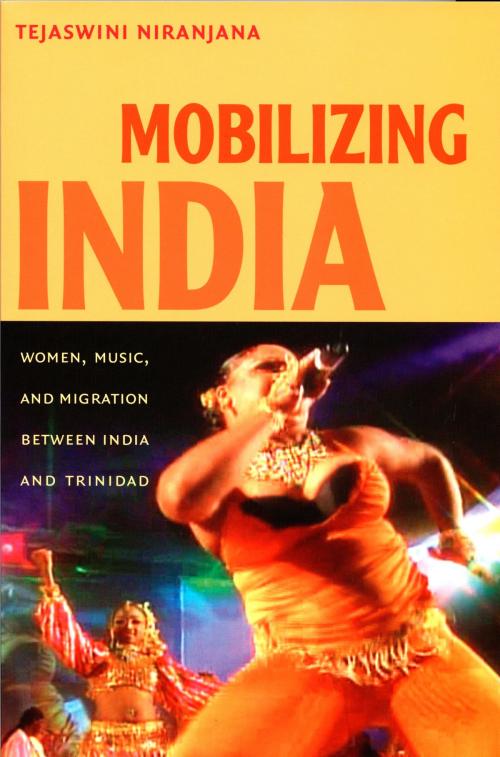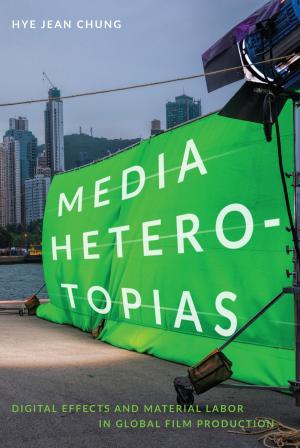Mobilizing India
Women, Music, and Migration between India and Trinidad
Nonfiction, History, Asian, India, Social & Cultural Studies, Social Science, Gender Studies, Women&, Anthropology| Author: | Tejaswini Niranjana | ISBN: | 9780822388425 |
| Publisher: | Duke University Press | Publication: | October 12, 2006 |
| Imprint: | Duke University Press Books | Language: | English |
| Author: | Tejaswini Niranjana |
| ISBN: | 9780822388425 |
| Publisher: | Duke University Press |
| Publication: | October 12, 2006 |
| Imprint: | Duke University Press Books |
| Language: | English |
Descendants of indentured laborers brought from India to the Caribbean between 1845 and 1917 comprise more than forty percent of Trinidad’s population today. While many Indo-Trinidadians identify themselves as Indian, what “Indian” signifies—about nationalism, gender, culture, caste, race, and religion—in the Caribbean is different from what it means on the subcontinent. Yet the ways that “Indianness” is conceived of and performed in India and in Trinidad have historically been, and remain, intimately related. Offering an innovative analysis of how ideas of Indian identity negotiated within the Indian diaspora in Trinidad affect cultural identities “back home,” Tejaswini Niranjana models a necessary project: comparative research across the global South, scholarship that decenters the “first world” West as the referent against which postcolonial subjects understand themselves and are understood by others.
Niranjana draws on nineteenth-century travel narratives, anthropological and historical studies of Trinidad, Hindi film music, and the lyrics, performance, and reception of chutney-soca and calypso songs to argue that perceptions of Indian female sexuality in Trinidad have long been central to the formation and disruption of dominant narratives of nationhood, modernity, and normative sexuality in India. She illuminates debates in India about “the woman question” as they played out in the early-twentieth-century campaign against indentured servitude in the tropics. In so doing, she reveals India’s disavowal of the indentured woman—viewed as morally depraved by her forced labor in Trinidad—as central to its own anticolonial struggle. Turning to the present, Niranjana looks to Trinidad’s most dynamic site of cultural negotiation: popular music. She describes how contested ideas of Indian femininity are staged by contemporary Trinidadian musicians—male and female, of both Indian and African descent—in genres ranging from new hybrids like chutney-soca to the older but still vibrant music of Afro-Caribbean calypso.
Descendants of indentured laborers brought from India to the Caribbean between 1845 and 1917 comprise more than forty percent of Trinidad’s population today. While many Indo-Trinidadians identify themselves as Indian, what “Indian” signifies—about nationalism, gender, culture, caste, race, and religion—in the Caribbean is different from what it means on the subcontinent. Yet the ways that “Indianness” is conceived of and performed in India and in Trinidad have historically been, and remain, intimately related. Offering an innovative analysis of how ideas of Indian identity negotiated within the Indian diaspora in Trinidad affect cultural identities “back home,” Tejaswini Niranjana models a necessary project: comparative research across the global South, scholarship that decenters the “first world” West as the referent against which postcolonial subjects understand themselves and are understood by others.
Niranjana draws on nineteenth-century travel narratives, anthropological and historical studies of Trinidad, Hindi film music, and the lyrics, performance, and reception of chutney-soca and calypso songs to argue that perceptions of Indian female sexuality in Trinidad have long been central to the formation and disruption of dominant narratives of nationhood, modernity, and normative sexuality in India. She illuminates debates in India about “the woman question” as they played out in the early-twentieth-century campaign against indentured servitude in the tropics. In so doing, she reveals India’s disavowal of the indentured woman—viewed as morally depraved by her forced labor in Trinidad—as central to its own anticolonial struggle. Turning to the present, Niranjana looks to Trinidad’s most dynamic site of cultural negotiation: popular music. She describes how contested ideas of Indian femininity are staged by contemporary Trinidadian musicians—male and female, of both Indian and African descent—in genres ranging from new hybrids like chutney-soca to the older but still vibrant music of Afro-Caribbean calypso.















